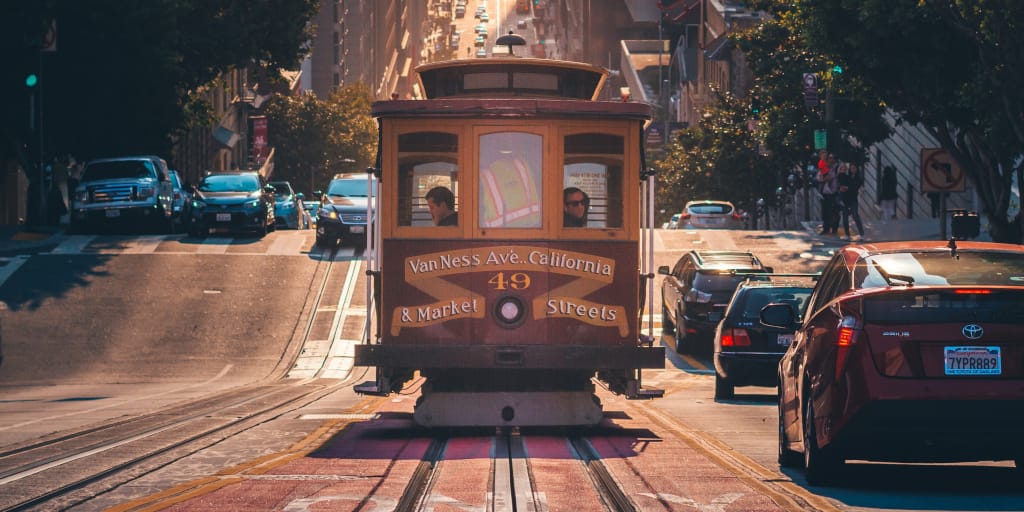It’s always the same; except when it’s different.
The sun is shining. Sweat glistens underneath my hardhat. I taste salt on my lips. I’m going to die. Again. And I’m not the only one.
Five of us stand here. Except when it’s more like seven or ten or fifteen of us. Or even just me and one other guy. Anyway, it’s never me alone. That’s something like a rule.
We’re very busy. Our wrenches or our drills are in our hands. Maybe a jackhammer. That would explain the noise. That would explain our inability to hear the CLANG CLANG CLANG of the trolley as it barrels towards us.
There are no barriers. Not even cones. Not once. You’d think that, in this city that so values the fitness of its public transit system, they could find room in their budget for something. A sawhorse. Even caution tape. But, without fail, each time, we’re left unguarded in the middle of the tracks, like sacrificial hens in an open henhouse.
The reasons we’re here are myriad. Regular maintenance. Emergency repair. Checking on a tripped wire. Between you and me, these all seem like excuses, as if any reason would do so long as we wind up standing here unawares.
Never once am I, or my colleagues, assigned any likes or dislikes. Frappes. Brown bears. Happy Days. Nor are we given any family, friends or loved ones. Countless iterations, and still, no one knows my favorite color, ice cream or sex position.
I lack depth. I’m only a silhouette to be knocked down and run over again and again. And again and again. Not a real construction worker; nothing more than the shadow of one.
We’re not the only ones out here. Over there, on an adjoining track or on the sidewalk or on the station platform, there is a pious nun or a group of school children or a famous pedagogue. They, too, for whatever reason, can’t hear the CLANG CLANG CLANG of impending disaster. They, too, come in many shapes and sizes and counts.
We always outnumber them, though. There’s never more than one or two of them for every three or four of us. Oftentimes, they make up for the difference by being especially virtuous or kind or promising. Therein lies the conundrum. We are plenty but expendable. They are few but cherished.
Each time, somebody can do something. The conductor can switch the tracks. A pedestrian can flip a switch. A passenger can redirect their course. It’s always a split decision. Our path or theirs. Our life or theirs.
Everyone’s concerned with what, in that crucial moment, they think, these savior-slaughterers. How do they value one soul over another’s? How do they weigh a trade of ten for two, or two for one? It’s no matter. Once they’ve made their mind up, once the trolley has wrecked one set of us, it starts all over again. Rinse and repeat. Guilt doesn’t stick to these saviors, these slaughterers, just as it doesn’t stain the tracks we die on.
No one ever asks what we think, the condemned, as the trolley menaces us. No one asks what it means to be made and destroyed, made and destroyed. Or what it’s like, the time between creation and destruction, when there’s only waiting. And realization. Of condemnation or rescue. Both are fleeting.
It doesn’t hurt. This may surprise you, that the crunching and breaking and remorseless force of trolley over body, is painless. Pain never enters the conversation. It’s enough that we, or they, die. Our blood and bones are superfluous. Never mind our feelings. The act is done or not done. The trolley kills or does not kill. Then we are forgotten or summoned again.
The problem with trolleys? There’s always somebody on the tracks.
Danny Gertner is an unpublished author living in Southern California with his wife and their cat. He works in marketing to pay the bills. ‘The Problem With Trolleys’ is his first fiction publication.
Photo by Amogh Manjunath on Unsplash.

